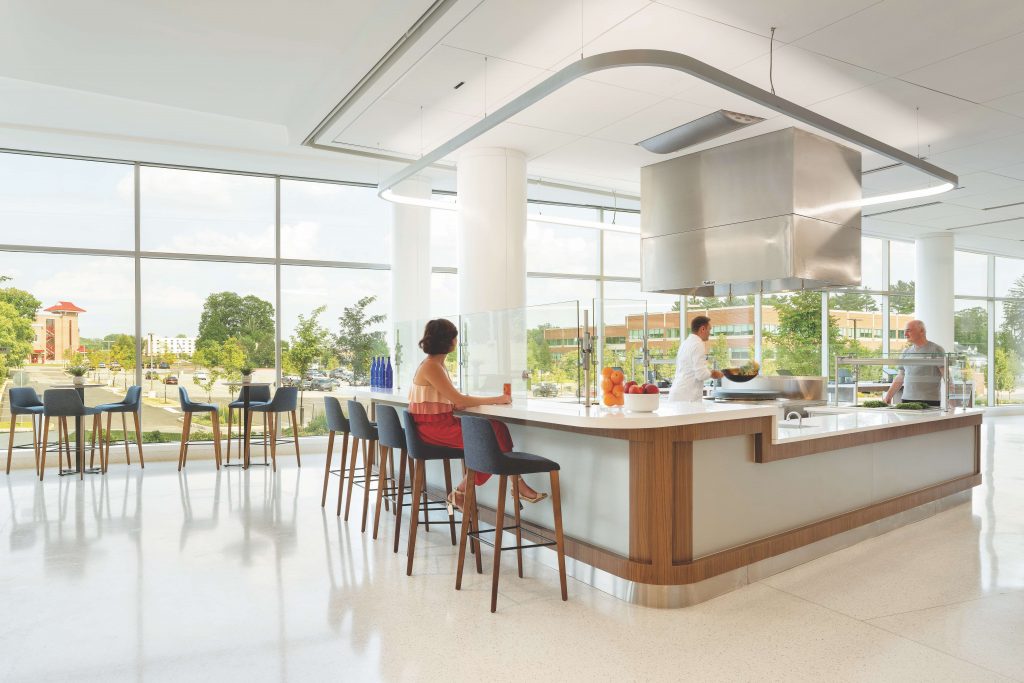This season, FCSI’s Dynamic Design podcast, supported by Atlas Metal, is focusing on how foodservice design is adapting to the new challenges thrown up by the Covid-19 pandemic.
In this, the third episode in our new season, we hear from Keith Short FCSI – director of design, West Coast for Cini•Little International. Keith is also a Certified Foodservice Professional through the National Association of Food Equipment Suppliers Limited (NAFES). He also is a Certified HACCP Practitioner and Facilitator through Safe Quality Food International. Notable projects of Keith’s include the University of California Merced; Las Vegas Ballpark; and Moscone Convention Center as well as various high-profile corporate and hospitality design work.
You can hear the episode, below:
https://soundcloud.com/fcsi-dynamic-design/dynamic-design-podcast-keith-short-fcsi
“The balancing act”
“There’s no doubt the pandemic thrust many businesses – including Cini•Little’s – into a bit of a balancing act as we tried to identify how to work, where to work and which projects were impacted,” says Short.
“Lucky for us and thanks to strong business development forecasting prior to the pandemic, our pipeline was full of projects in many different phases of design. This allowed us to work on some, while others were placed on hold.”
As to whether or not Short is now designing projects in a significantly different way to how he was pre-pandemic – and whether or not those design rationale changes are here to stay – he says, “Kind of. I am a big believer in creating a back of house areas open-style, meaning less walls and minimizing the pockets within the space. That allows the catering staff freedom of movement. It streamlines their communication in production and the assembly of a meal. It also has the ability to supervise and control any possible cross-contamination within that space.”
Short also addresses the positives we can take from the pandemic and how it can still help the industry to implement better practices, how FCSI and its sister associations can become a “think thank” for the whole sector, plus why we must place greater emphasis on the ‘F’ word: future.
Further details:
This podcast series, available on both Soundcloud and Podbean, is supported by Atlas Metal, a trusted serving equipment partner with a hands-on approach to doing business. See how they’re making metal personal at atlasfoodserv.com.
Season three:
In the first episode, FCSI Associate Tim McDougald of Clevenger Associates talks about the future of the display kitchen, the so-called demise of salad bars, the future of large dining rooms and the resurgence of the humble QR code.
In the second episode, Min An FCSI of Ricca Design Studios discusses the pandemic and her design philosophy.
Season two:
In the first episode, Scott Reitano FCSI of Reitano Design Group discusses the design of commercial kitchens and front-of-house spaces for the education sector: from K-12 to colleges and universities.
In the second episode of series two, Christine Guyott FCSI of Rippe Associates addresses foodservice design in healthcare – from hospitals to senior living facilities.
In the third episode of series two, Ken Schwartz FCSI of SSA takes on restaurant kitchen design.
Season one:
In episode one, season one of the series, William Caruso FFCSI (PP), founding partner of WC & Partners, Inc. and chair of FCSI The Americas looked at the importance of strategic and practical planning when leading a design-led foodservice project from a consultancy perspective.
In episode two, season one, Kristin Sedej FCSI of S2O Consultants, Inc, addressed how essential it is to have solid partnerships, when working on a design-led foodservice project from a consultancy perspective.
In episode three, season one, Joseph Schumaker FCSI of Foodspace discussed why it is essential to marry strong aesthetic design with robust functionality and the correct processes to achieve the right flow when designing a commercial kitchen.
In episode four, season one, Laura Lentz FCSI of Culinary Advisors looks at why the wellbeing of the end-user (from the back-of-house and front-of-house employees, to the customers) must come first when designing a commercial kitchen space.
The above episodes, and all additional FCSI podcasts, are also available to download on Podbean.
Michael Jones





